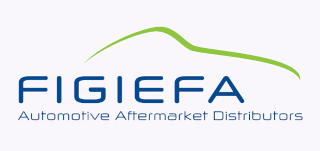For decades, the Motor Vehicle Block Exemption Regulation (MVBER) and its Supplementary Guidelines have set the legal frame which allows our parts distribution and repair companies to provide competitive aftermarket services, in fair competition with the vehicle manufacturers’ networks. It facilitates in particular the trade of spare parts, access to technical information, and the servicing of vehicles under warranty.
What is the issue?

In April 2023, the European Commission has prolonged the MVBER regime for another 5 years, until 31 May 2028. It also made some welcomed changes to the Supplementary Guidelines, in particular by upgrading the list of items of technical information that should be made available to independent operators. It now includes activation codes for replacement parts and info on battery management systems and ADAS components, a must considering the increasing electrification and digitalisation of vehicles.
FIGIEFA will now start working intensively to identify the most relevant challenges and evolution in the market to be able to contibute with valuable input and advocate for a new MVBER legislation after 2028.
How does this impact our business ?
The end or a downgrading of the MVBER could put our Members and the wider independent aftermarket in a relationship of reinforced dependency towards vehicle manufacturers, as numerous safeguards covering a wide range of aftermarket services would be abandoned. The MVBER guarantees, among others, three main sets of measures to ensure your ability to be competitive:
- Vehicle manufacturers may not hinder their original equipment suppliers from also supplying their products (components) as spare parts to independent distributors. Independent repairers are free to purchase and to use any parts or equipment for the repair and maintenance of vehicles, and authorised repairers can source “original parts” and “parts of matching quality” from parts suppliers and independent parts distributors.
- Vehicle manufacturers may not make the warranties conditional on the repair and servicing of a vehicle within their network or on the use of their own branded spare parts, and consumers have the right to use any repair shop for non-warranty work, during both the statutory and the extended warranty periods. FIGIEFA has prepared a dedicated brochure on the topic, as well as Q&As to enable a preliminary assessment of the conditions imposed by vehicle manufacturers in their warranty policies.
- Vehicle manufacturers may not withhold technical information; access to it should be given without undue delay, in a usable form, at a price which should not discourage the access, and vehicle manufacturers have to give independent operators access to technical information at the same time as to their authorised repairers.
What is FIGIEFA doing ?
FIGIEFA, who had been pivotal in establishing the current version of the MVBER, advocated very intensively towards the European Commission to extend and upgrade the existing MVBER. In particular, it is participating actively in the consultation process initiated by the European Commission and meeting regularly with officials, in particular within the Directorate General for Competition, which is in charge of the legislation.
FIGIEFA, with the support of its Members, has investigated the positive impact that the MVBER has had on competition in the automotive aftermarket over the years, but also where it was not so effective. FIGIEFA produced to this end a detailed report evaluating the efficiency of the various clauses of the MVBER, proposing recommendations to improve them, providing concrete evidences sustaining its claims, and establishing a comparison with third countries.
FIGIEFA advocated in particular that new forms of hindrances should be taken into account, such as the introduction by vehicle manufacturers of activation codes and softwares for replacement parts, which make the repair with independent spare parts uncompetitive or even impossible. The enforcement should also be simplified and reinforced, as companies in our sector often don’t have the financial and legal resources to defend their rights.
FIGIEFA works closely with other trade associations representing different segments of the automotive aftermarket (workshops, data publishers, garage equipment suppliers, lubricant suppliers…) within AFCAR, the Alliance for the Freedom of Car Repair in the European Union, to have a common voice stressing the importance for our entire ecosystem to keep and upgrade the current legislative regime. These associations liaise in particular on the issue of access to technical information, which appears to be the most common issue all market players are facing.
FIGIEFA is also in contact with fellow associations around the globe to exchange best practices. Indeed, other regions in the world don’t have yet a similar legislation, but there was in some countries a development towards a government-led or competition authority monitored agreement or scheme. These are the first steps towards a complete, binding and true regulatory solution, and it shows the lighthouse effect of the European legislation on the matter.
